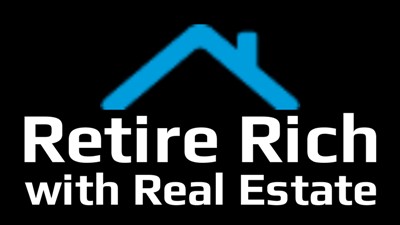
When I started in real estate I didn’t have a mentor or anyone helping me navigate the minefield that is investing in real estate. Here are five things I wish someone had told me when I was starting out.
1. Start small – My first property was a duplex. I know, a duplex is not exactly a huge property, but owning a multi-family property is a different animal and comes with many more potential problems. I found out after I purchased the property, that here in Tennessee, any rental property with 2 or more rented units is considered a commercial property for property tax purposes. Of course, the commercial tax rate is 15% higher than the standard residential rate. When I researched the property the taxes were calculated at the residential rate. A previous owner (not the one I purchased from), several years earlier, had apparently lived in one side and rented the other making the property qualify for residential tax rate status. The state had apparently missed the fact that it was no longer owner-occupied and both units were being rented until my sales transaction was recorded. During my pre-purchase property analysis, I had based my cash flow numbers on previous tax bills which were now going to be considerably higher. I was concerned because I financed the property and my numbers were tight. Fortunately, when the dust settled, it still cash flowed and soon thereafter, I was able to raise rents to the current market rates. Thus increasing my cash flow.
While it seemed like a good idea at the time, and it turned out to be a pretty good investment, it was riskier than it should have been. It’s those little details that you don’t know that can come back to bite you! Looking back, I probably would have been better off to buy a small cheaper single-family house as a first investment property. I had no experience managing rental property and dove right into the deep end of the pool by starting with a multi-family. While I only had two tenants to manage, both of which I inherited with the purchase, it soon became obvious that one was not a keeper. I had to evict that tenant for non-payment the second month I owned the property. I had no idea what I was doing or how different multi-family properties were from single-family. Having never owned either before. I assumed managing two units would be almost as easy as one, but I was wrong! Multi-family properties have some negative aspects, things I had never really considered, like lawn care maintenance, parking issues, noise complaints and pest control problems. Even the type of tenants multi-family properties attract are of a little different mindset and seem to be more transient in nature. It helps to have a little property management experience before venturing into multi-family properties.
2. Screen all tenants – In 2002, when I start investing, tenant screening wasn’t as easy or as common as it is today. After I got burned by a bad tenant, I learned quickly not to trust what people say and to verify everything. Back then we had to use paper applications that were physically signed by the tenant. Then fax them to a screening company and wait for up to 24 hours to get a reply. Now we use electronic applications and can get a response in a few minutes. These screenings cost me a few bucks but are worth every penny. I used to not charge an application fee, but I realized some people would fill out applications knowing they have a bad history (credit, criminal, or rental) because they had nothing to lose. I got tired of paying for bad reports. Charging a fee, and shifting the cost to the prospect, weeded out a lot of these bad applicants.
3. Cash flow is king – Never buy a property that doesn’t cash flow well. In the beginning, I was using a 1% rule for gross income to find a deal. This means that if I paid $100,000 for a property then it should rent for $1000 (1% of $100k) per month. Now, I wouldn’t even look at a deal lesson with less than a 1.5% gross rent per month. This comes from experience, as you get better at finding deals you also should get better at analyzing and negotiating deals. Once I did a little research, I found that my first property was rented under market rate. So as soon as the tenants turned, which wasn’t very long, I raised the rent. Which raise my return.
4. Pay Cash – This may not be an option for you, especially in the beginning, but having the ability to pay cash for a property gives you a huge edge in the negotiation stage. While other investors make offers with financing contingencies your offers can be cash with a quick close. The cash does not have to be your cash, it could come from a hard money lender, a friend, a relative, or a Home Equity Line of Credit (HELOC). Taking the contingencies out of the deal is the key. The best deals are almost always purchased by a cash buyer!
5. Be prepared to move quickly – When I was looking for my first property, I couldn’t afford to pay cash for it. I knew I would have to finance the property. This meant every time I submitted an offer I had to make it contingent on financing. I also did not know how to properly inspect a property, so I also included a contingency for a property inspection with all my offers. This caused me to miss many deals, early on. Contingencies slow down the deal process and make your offer less attractive to the seller. Most of the truly good deals on properties sell quickly and many times have multiple offers. This means the seller can often choose the best offer from those submitted. If you have another investor making a competitive offer consisting of all-cash with a quick close, that is very appealing to a seller. What I could have done is borrowed money from a hard money lender. This would have been at a much higher rate of interest and for a shorter term of course, but this would have allowed me to make cash offers to the sellers. Because hard money loans can be set up in advance, before the property is even found, by skipping the bank loan process, I could have submitted offers quicker and probably closed more deals. It took me almost a year to find and close my first deal. I made many offers, only to get outbid or turned down because the seller had another, more attractive, offer. I wasted a lot of time chasing deals I had no chance of ever getting, only because of my contingencies.

